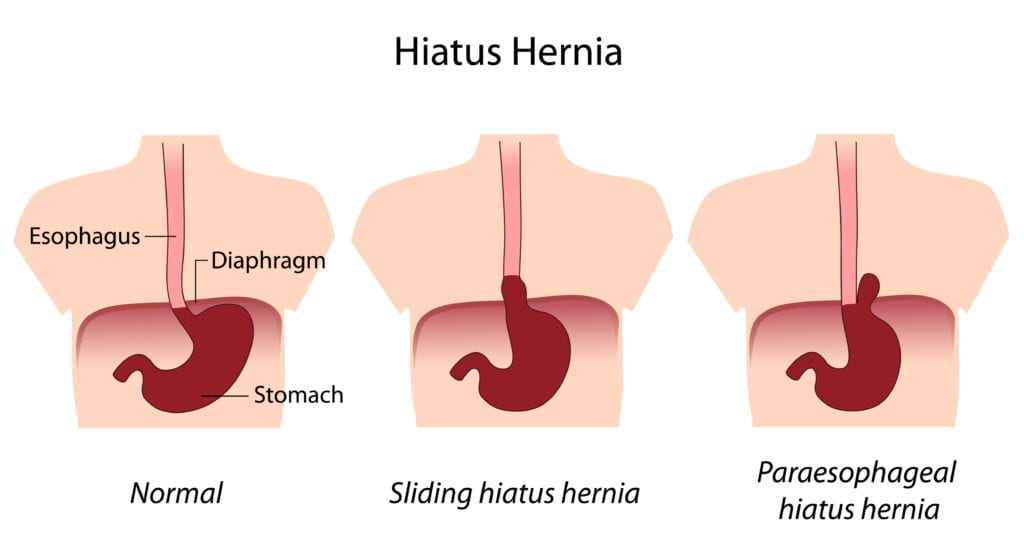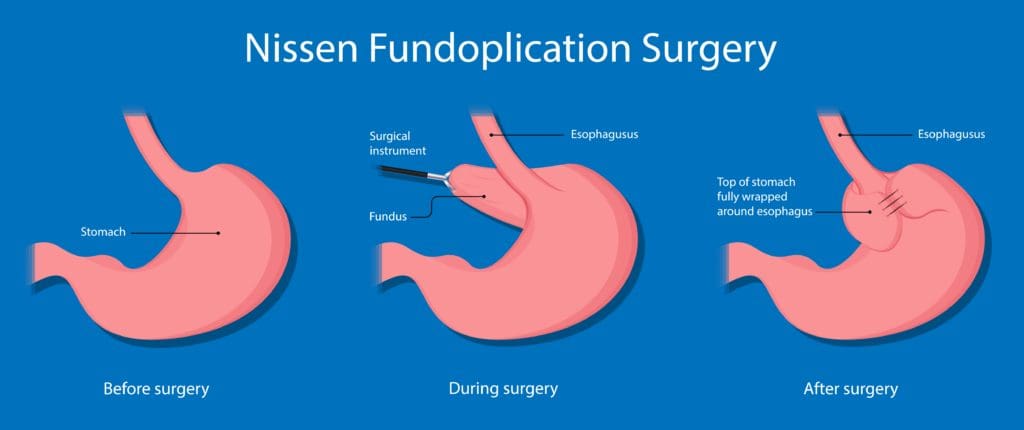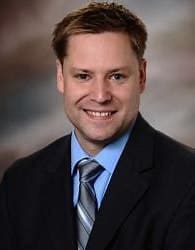
A hiatal hernia occurs when part of the stomach slides or herniates up above the diaphragm, so that it is in the chest instead of the abdomen where it belongs. Sometimes these can be very minor and cause no symptoms at all. Other times they can be significant in both size and symptoms, causing severe reflux (GERD) or heartburn symptoms. The size of the hiatal hernia does not necessarily correlate with the severity of symptoms.
In most all cases, the GERD symptoms can be controlled with powerful acid-reducing agents called proton pump inhibitors, or PPI’s. These commonly used medications include Prilosec, Nexium, Protonix, and Prevacid among others.
In cases where GERD is still severe even after treatment with high doses of these medications, an operation called a Nissen fundoplication is sometimes performed. The procedure is named after a German surgeon, Dr. Rudolf Nissen, who first performed the operation in 1936. In times past it was done with a large abdominal or chest incision, but for the last 20 years or so has mostly been done with a laparoscopic (minimally invasive) technique.
A Nissen fundoplication involves stitching closed the hernia in the diaphragmatic hiatus, and then wrapping the stomach around the junction between the esophagus and stomach, as depicted below. This augments the natural sphincter muscle in that area, which in many cases is not working properly. There are also variants of the Nissen fundoplication such as the Toupet fundoplication, which is a partial wrap.
A Nissen fundoplication involves "wrapping" the stomach

As one could imagine, weight loss surgery would be difficult after this operation, as surgeons need to work on the very area that has been already surgically altered. When a gastric sleeve or bypass is attempted, the entire fundoplication must be taken down and normal anatomy restored. This is difficult and carries significant risk of tearing or making a hole in the stomach, among other complications. If this happens and is unrecognized, it can have serious consequences even including death.
Although we at JourneyLite Physicians have performed this complex operation in the past, we are no longer offering weight loss surgery to patients who have had prior fundoplications due to the significantly increased risk. While it is technically possible in select patients, it is best performed in an academic, tertiary care setting such as The Cleveland Clinic or Ohio State University.
Also in Cincinnati, Dr. Jon Thompson of UC Health and Dr. Kevin Tymitz at TriHealth do these types of revisions. Click below to be connected to their web site.



